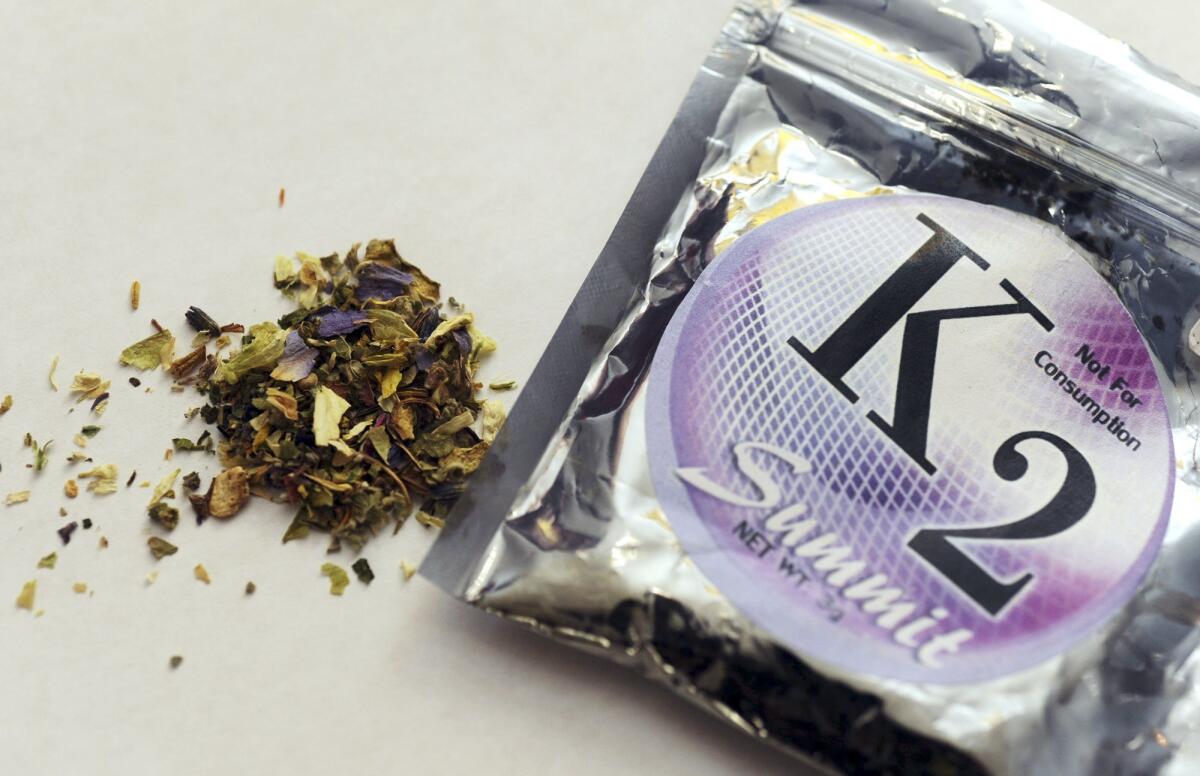Glendale man sentenced to 16 months in prison for his role in synthetic marijuana ring

A package of K2 — which contains herbs and spices sprayed with a synthetic compound chemically simila to THC, the psychoactive ingredient in marijuana — is shown in this file photo.
- Share via
A Glendale man was sentenced to 16 months in federal prison this week for his role in a synthetic drug ring that manufactured and distributed synthetic marijuana, commonly known as “spice,” federal officials said.
Faisal Iqbal, one of 16 people indicted in Los Angeles last year in connection to the ring, pleaded guilty to one count each of conspiracy to distribute synthetic cannabinoids and structuring a financial transaction to avoid a reporting requirement, according to the U.S. Attorney’s office.
Iqbal was accused of operating businesses in the skid row area of Los Angeles to facilitate and oversee the production and sale of the drug, sold wholesale to bodegas and convenience stores under names such as “Crazy Monkey” and “Mad Monkey,” according to the federal indictment.
Join the conversation on Facebook >>
Packaged in bright colors with cartoon labels, the drug, produced to mimic the high of marijuana, is designed to attract teenagers who can’t legally buy pot, but federal officials said it’s extremely dangerous.
Though the drug is labeled as “potpourri” with disclaimers such as “not for human consumption,” and “DEA compliant,” federal officials said the defendants knew the drugs were being sold for human consumption.
To manufacture the drug, chemicals — analogues of controlled substances — are often blended with acetone to create a mixture that’s then sprayed onto plants, such as marshmallow leaves, to create synthetic marijuana, according to court records.
The products were reportedly sold to customers in multiple states, including California, Arizona, Georgia, Texas, Colorado, South Carolina and Utah.
The investigation was part of a nationwide crackdown on synthetic-drug distribution that included an operation in Los Angeles that targeted three organizations that officials said manufactured and distributed thousands of kilograms of synthetic cannabinoids.
In the last several years, the Drug Enforcement Administration has identified more than 400 new designer drugs, most of which are manufactured in “rogue” labs in China and solid online or at smoke shops and gas stations, officials said.
--
Alene Tchekmedyian, alene.tchekmedyian@latimes.com
Twitter: @atchek
ALSO
37 years later, Barbara Ballman’s killer is brought to justice and now faces the death penalty
Documented gang member suspected of selling heroin, meth out of Glendale home
